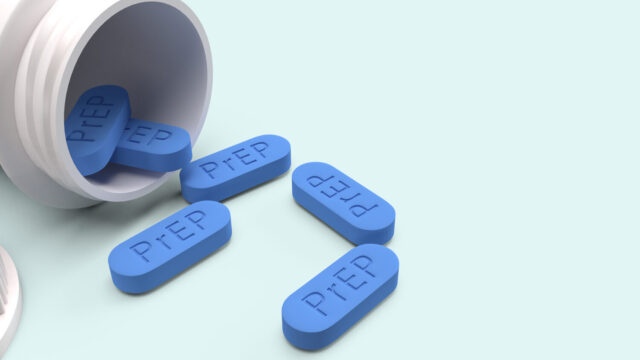
Our world battles HIV relentlessly. At the forefront of this struggle stands PrEP, a preventative regimen of antiretroviral drugs. This guide provides critical insights for those whose partners are PrEP users, empowering you to make informed decisions about your sexual health.
The globe wages a hard battle against HIV. PrEP has emerged as a trailblazer in this fight, restricting HIV’s spread. When taken correctly and consistently, it can provide near-complete (99%) protection from HIV during intimate encounters with an HIV-positive person. Understanding how the medication prevents HIV is crucial for your and your partner’s safety.
PrEP: Revolutionizing HIV Prevention

Prevention methods against HIV vary, including consistent condom use and ‘treatment as prevention.’ PrEP has established itself as a potent weapon for high-risk individuals, acting as a barrier and introducing tranquility into relationships where one partner is HIV-positive.
Exploring Truvada: The go-to drug for PrEP is Truvada, combining two antiretroviral medicines, Tenofovir disoproxil fumarate and Emtricitabine (TDF/FTC). Regular consumption of Truvada can remarkably decrease transmission risk during intimate moments. Consulting a healthcare professional is critical to assessing your eligibility for PrEP and receiving personalized advice.
Understanding PrEP’s role and effectiveness in curbing the disease is critical. Being informed aids in fostering a safe and healthy relationship. Open conversations about PrEP use are vital for mutual understanding. When your partner is on PrEP, educating yourself about its effectiveness is essential.
Initiating Conversations About Your Partner’s Choice to Use PrEP
Transparent dialogue is the foundation of a flourishing relationship. Conversations about sexual health and prevention are integral to this communication. When your partner opts for PrEP, engaging in unbiased, open discussions becomes crucial. Show your support, encourage them to share, listen attentively, and reassure them about your concern for their health.
Conversations about sexual health are crucial in any relationship. Discuss your sexual health history and any past HIV or STI tests. Knowing each other’s status aids in informed, safe sex decisions, even with the added protection provides. Consider joint testing as a symbol of collective commitment to maintaining sexual health.
If your partner chooses to use PrEP, acknowledge their proactive approach to prevention. Their choice reflects their commitment to a safe, intimate experience. Express any concerns or queries openly. This supportive and understanding approach can solidify your relationship and foster trust.
Practicing Safe Sex While Your Partner is on PrEP

Despite the considerable protection PrEP offers, no method is 100% foolproof. To augment PrEP’s effectiveness, continue practicing safe sex. Regular and correct condom use provides an extra safeguard against HIV and other STIs. Avoid risky behaviors such as needle sharing. Remember that open communication with your partner about boundaries and preferences can further enhance your sexual experience and overall safety.
Both partners should commit to frequent HIV and STI testing. Early infection detection can lead to prompt treatment. This shared responsibility reflects proactive health preservation, not distrust. Additionally, exploring different intimate activities that don’t involve the exchange of bodily fluids can contribute to a varied and fulfilling sexual relationship while minimizing risk.
By combining usage, safe sex practices, and regular testing, you can build a robust HIV prevention strategy. Collaborative efforts in safeguarding health can enrich your relationship and prioritize your well-being. It’s worth researching and discussing alternative methods of protection, such as dental dams and PrEP for the HIV-negative partner, to tailor your approach and further reduce potential transmission risks.
Managing Non-Monogamy
In non-monogamous relationships, you’ll need to take extra safety precautions. Open discussions about expectations and boundaries are crucial. Determine if PrEP usage extends to other partners or is exclusive to your relationship. Such clarity facilitates informed decision-making.
In non-monogamous situations, regular condom use becomes even more critical. Daily use with all partners reduces transmission risk. Education about safe condom use is vital for all partners involved.
Frequent HIV and STI testing for all partners is a must. Early detection leads to timely treatment. Advocate for regular health check-ups for everyone to prioritize sexual health.
Creating a supportive and understanding environment is critical. Encourage open discussions about sexual health and prevention. Such a caring ambiance fosters trust, easing sensitive conversations.
The Necessity of Regular Testing and Check-ups

Routine HIV testing is crucial for both partners, especially in non-monogamous relationships. The testing frequency may depend on the number of partners, sexual behaviors, and local HIV rates. Adhere to your healthcare provider’s recommendations.
Besides tests, regular STI screenings are essential. Some STIs may not exhibit symptoms, making testing the only reliable detection method. Regular health check-ups are also crucial for overall well-being. Healthcare providers can offer sexual health counseling, risk assessment, and updates on HIV prevention advancements.
By prioritizing transparent communication, safe sex practices, regular testing, and check-ups, both partners can maintain safety and nurture a healthy, supportive bond. A proactive approach to HIV prevention equips both partners with the knowledge and tools to protect their health adequately. Individual responsibility and mutual respect are essential for a safe, intimate experience, no matter the relationship type.
Preserving your safety from HIV when your partner is on PrEP involves understanding, communication, safe practices, and regular testing. PrEP is a pivotal tool in HIV prevention, but it’s essential to understand its efficiency, limitations, and the need for ongoing safe sex practices and testing.
End-Notes:
Educating yourself about PrEP providers online helps you make informed decisions. Understanding its advantages and potential side effects can boost confidence in both partners. Open communication about your partner’s decision to use PrEP is essential for trust and mutual support. Clear boundaries and expectations in non-monogamous relationships foster a safe environment.
While PrEP provides substantial protection against HIV, maintaining safe sex practices offers additional security. Regular HIV and STI testing for both partners ensures early detection and immediate intervention, reducing transmission risk.
Being proactive in prevention allows both partners to prioritize their health. Individual responsibility combines with mutual respect and is crucial for a safe, intimate experience, regardless of relationship dynamics.
Always seek personalized advice from healthcare professionals on HIV prevention. Taking control of your sexual health and staying updated with advancements in prevention can help you lead a fulfilling life with your partner. Together, you can forge a safe future, free from HIV worries, enriched with trust, understanding, and mutual responsibility.









